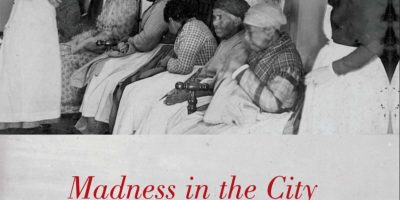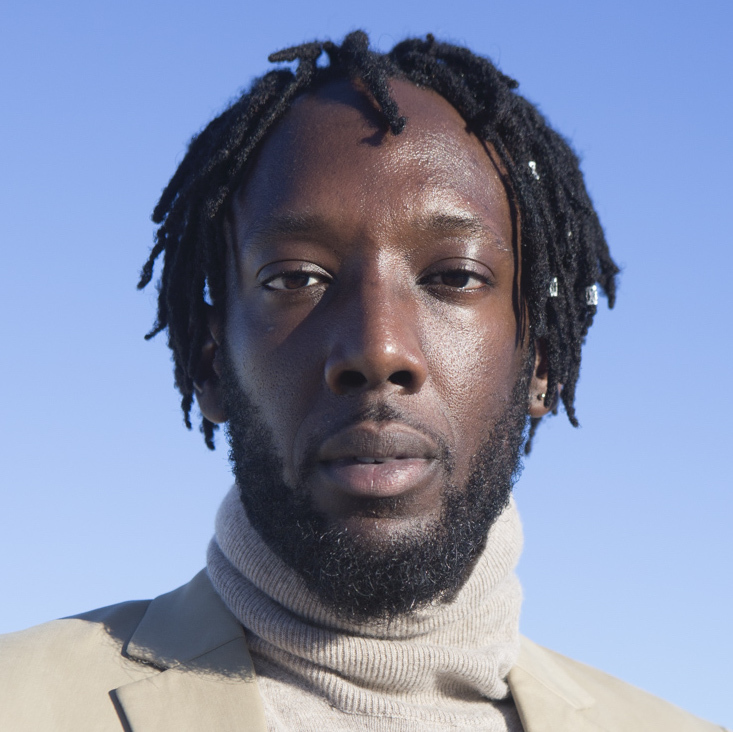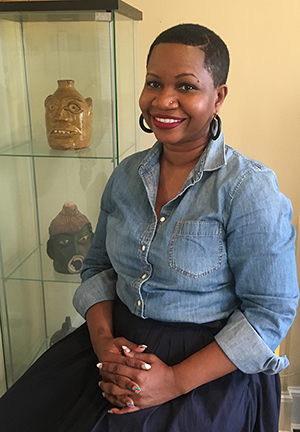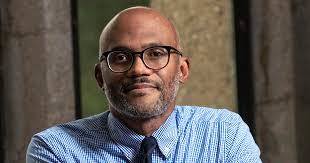Sep 02
Black Health: Medical Racism, Resistance, and Wellness



Description
The pandemic has laid bare longstanding racial inequities in healthcare. Join us for the opening panel of the 2021-2022 CBFS season on Black Health: Medical Racism, Resistance, and Wellness. The conversation brings together four scholars whose work examines the long history of medical racism and unequal access to quality medical care including mental health care; the racialized political economy of public hospitals; and the extensive struggles Black people have waged to challenge healthcare inequalities and build strategies for their own wellness.
Speakers
-

George Aumoithe
Stony Brook University
Dr. George Aumoithe is an Assistant Professor of Global Health. He earned his PhD from Columbia University in 2018 and completed postdoctoral training in legal history at Princeton University in 2020. Dr. Aumoithe's research focuses on the effect of anti-inflationary economic policy and colorblind legal ideology on public hospitals. His research interests engage problems in political economy, social welfare policy, public health, curative medicine, and epidemic preparedness.
In 2019, Dr. Aumoithe organized a national conference called Law, Difference, and Healthcare: Making Sense of Structural Racism in Medico-Legal History. He directs the inaugural Global Health and Health Inequality Mapping Lab in Africana Studies. Dr. Aumoithe is currently completing a book manuscript tentatively titled Medical Scarcity: The Political Economy of Healthcare Rights in America.
-

Deirdre Cooper Owens
University of Nebraska, Lincoln
Deirdre Cooper Owens, an award-winning historian and popular public speaker, is the Charles and Linda Wilson Professor in the History of Medicine and Director of the Humanities in Medicine Program at the University of Nebraska, Lincoln. In this position, Dr. Cooper Owens is one of two Black women in the U.S. running a medical humanities program. Dr. Cooper Owens is also the Director of the Program in African American History at the Library Company of Philadelphia, the country's oldest cultural institution. She is the author of Medical Bondage: Race, Gender, and the Origins of American Gynecology.
Dr. Cooper Owens is a proud graduate of two historically black colleges and universities, the all-women's Bennett College and Clark Atlanta University. She earned her Ph.D. in history at UCLA and has had a number of prestigious fellowships at the University of Virginia, the American College of Obstetricians and Gynecologists, and as a Big Ten Academic Leadership Fellow. As one of the country's most "acclaimed experts in U.S. history," according to Time Magazine, Cooper Owens is steadily working towards making history more accessible and inspiring for all.
-

Stephanie Y. Evans
Georgia State University
Dr. Stephanie Y. Evans is a Professor of Black Women's Studies and serves as Director of the Institute for Women's, Gender, and Sexuality Studies at Georgia State University. Her research interest is Black women's intellectual history, memoirs, and mental health. She is author of three books: Black Women's Yoga History: Memoirs of Inner Peace (SUNY, 2021); Black Passports: Travel Memoirs as a Tool for Youth Empowerment (SUNY, 2014), and Black Women in the Ivory Tower, 1850-1954: An Intellectual History (UF, 2007). She is also lead co-editor of three books, Black Women and Social Justice Education (SUNY, 2019), Black Women's Mental Health: Balancing Strength and Vulnerability (SUNY, 2017), and African Americans and Community Engagement in Higher Education (SUNY, 2009).
Dr. Evans has two projects in progress: "Chair at the Table: Black Women Department Chairs on Academic Service, Leadership, and Balance" (a 2021 special issue of Palimpsest journal) and Black Women and Public Health: Regenerative History, Practice, and Planning (in production, SUNY). She is curator of several web resources, including the Black Women's Studies Booklist, Africana Memoirs Database, Black Women's Music Database, and the Black Women's Yoga History site.
She has co-edited two community-based publications, OASIS: Oldways Africana Soup in Stories (with Oldways, a food and nutrition nonprofit) and Purple Sparks: Poems by Sexual Assault Survivors (with youthSpark, an anti sex-trafficking and youth abuse prevention non-profit).
At GSU, Professor Evans is affiliate faculty in the Department of African American Studies, the Center for the Study of Stress, Trauma, and Resilience, as well as in the Center for Studies of Africa and Its Diaspora. Between 2011 and 2019, she served as Chair of the of African American Studies, Africana Women's Studies, and History (AWH) Department at Clark Atlanta University. Dr. Evans was recognized with the CAU 2017 Aldridge-McMillan Award for Excellence in Research.
Stephanie Evans received her PhD in 2003 from the W. E. B. Du Bois Department of Afro-American Studies with a concentration in History and Politics from the University of Massachusetts, Amherst; in May 2002 she earned a Master’s Degree in the same field. Also in 2002, she completed the Graduate Certificate Program in Advanced Feminist Studies.
-

Martin Summers
Boston College
Martin Summers is a cultural historian of the nineteenth and twentieth century US, with particular research and teaching interests in race, gender, sexuality, and medicine. He regularly teaches courses on post-1865 US and African American history; gender and sexuality in African-American history; and medicine and public health in the African diaspora.
His book, Madness in the City of Magnificent Intentions: A History of Race and Mental Illness in the Nation’s Capital was published in 2019. Summers’ current book project, Inner City Blues: African American Mental Health and Social Policy in Twentieth Century Urban America, is an historical examination of how social scientists, psychiatrists and psychiatric social workers, government officials, and community organizers understood the relationship between urbanization and mental illness, and consequently sought to address the mental health care needs of African Americans in so-called ghettos. Summers’ research has been supported by the Ford Foundation, the American Council of Learned Societies, the Radcliffe Institute for Advanced Study, and the National Humanities Center.